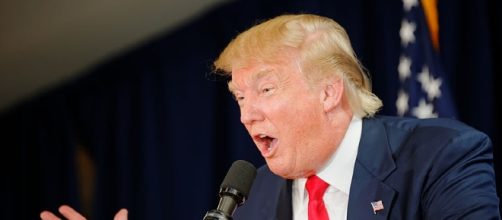The most recent terrorist attack in London highlighted the massive rifts that President Trump is creating. In the wake of the attack The U.S. President took to Twitter, not to express a message of solidarity and support, but one of vitriol towards the Mayor of a city under siege.
It took President Trump mere hours to begin his cruel harassment of London Mayor Sadiq Khan, while pushing for the courts in the United States to give “us” back “our” rights so that he could have his travel ban.
He appeared to take Mayor Khan's advice to “remain calm” as a poor idea, and we can only wonder what he would have advised U.S.
citizens to do if they found themselves under attack?
In a subsequent tweet, President Trump did express some amount of solidarity, but it was in all caps, and that isn't normally done by heads of state. This is a small, albeit tragic example of the effects that a Trumpian presidency is having, and there are many more.
Not May's day
UK Prime Minister Theresa May would appear to be in a tricky spot. The UK and USA have long been allies, but her responsibility to maintain friendly relations with The United States at this point in history could be the cause of some problems back home.
President Trump hasn't been in power very long, and already his administration has been the cause of some headaches on the other side of the pond.
In the case of the Manchester bombings, the division that President Trump has created within the U.S. intelligence community was cited as the reason that the Manchester police department cut the U.S. off from their Intel, as sensitive information was being leaked directly to the press from sources in the United States.
The idea that a regional police force can't trust a national intelligence apparatus to keep a lid on is a rather new idea, and it shows how much things have changed in the last few months. Within a day, the Manchester PD reopened lines of intel sharing with the USA, but in the public eye, the damage had been done.
Finger pointing
Another example of the divisive nature of President Trump's politics are the multiple accusations that originated from Sean Spicer that the clandestine UK surveillance agency GCHQ was monitoring Donald Trump in the run-up to the 2016 election.
This sort of speculation is extremely damaging to bilateral relationships, and in this case, the little known UK intelligence agency went on the record, calling the allegations, “utterly ridiculous.”
While it is impossible to know, many UK based commentators allege that May's soft stance on Trump's antics are what cost her conservative party 10 percent of the London vote in the recent election.
Prior to President Trump's callous tweets in the aftermath of the latest London attack, the conservative party had enjoyed a much higher level of support in the polls.
A divided nation cannot prosper
Though President Trump has been a disruptive force in the international arena, the effects he has had within the USA have a severity that is rare in the modern era.
In the wake of his election violent protests broke out across the country, and a level of left-wing extremism unknown since the days of the Weathermen has come back to life.
The Antifa movement isn't new, but in the wake of Donald Trump's election, hey have become active in the U.S. to a degree never seen before. The number of violent protests are rising, and the Alt-right and Antifas seem to want to do battle in public protests all over the nation.
Even within Trump's Christian supporters there are divisions emerging, with many becoming disillusioned by his inability to deliver on everything that was promised during the campaign.
The entire political spectrum in the U.S. is solidifying, with the liberal left taking entrenched positions that aren't open to compromise. How this situation will develop isn't easy to gauge, but it would appear that hard lines are being drawn, with unity and cooperation suffering at the hands of rigid, divisive idealism.


